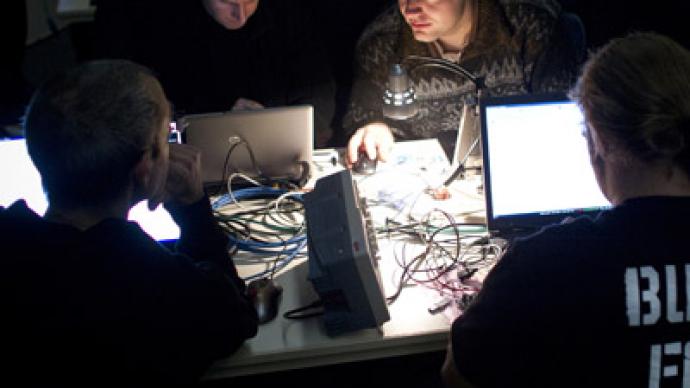Two-decade gap: UK lacks experts to fight off cyber attacks

Britain is short of IT experts to fight the cyber attacks the country is facing, and it will take at least two decades to fill in the gap, according to a report. Schools are stepping up their effort to create a new IT generation to fend off hackers.
UK is highly susceptible to hackers a new report from the National Audit Office (NAO) reveals. The report says the country’s emergency services including communications, transport and utilities are all in danger of a hacker attack, as the country lacks the right personnel to fight off the threat. Food, health and financial sectors are also highlighted to be at risk. "The threat to cyber security is persistent and continually evolving”, stated NAO head Amyas Morse.In 2011 UK fell victim to 44 million cyber attacks, which equates to about 120,000 attacks per day, costing the country around US$42 billion a year, the report states.The main problem identified is that the internet is growing faster than the number of specialists who can deal with its drawbacks, such as lack of security. For the shortage of skilled workers the report blames government for not promoting science and technology enough.“UK lacks technical skills and that the current pipeline of graduates and practitioners would not meet the demand.” Education officials quoted in the report say that it could take "up to 20 years to address the skills gap at all levels of education". Another government shortcoming is the attraction and retention of IT workers in the public sector, as the private sector offers better salaries. There is also a lack of security awareness on behalf of computer users in the UK, as top three passwords in 2012 turned out to be easily breakable and include: ‘password’ ‘123456’ and ‘12345678’. The report then argues that if Britons learn the significance of the cyber threat and use “simple computer hygiene” such as strong passwords, then “80 percent of cyber attacks could be prevented.”"Business, government and the public must constantly be alert to the level of risk if they are to succeed in detecting and resisting the threat of cyber attack", added Morse.
The UK is facing a growing threat from cyber attacksLast month the Commons Defense Select Committee released a report, arguing that UK’s military, economic and industrial assets are at risk of being compromised by cyber attacks if the problem is not properly analyzed and addressed. In December 2012 the UK announced it would set up a special defensive cyber squad after revealing an onslaught of state-sponsored attacks on its key infrastructure such as electricity, water and heating companies from hostile states.The UK has committed an additional US$1 billion to be spent over four years starting from 2011 on the National Cyber Security Programme, as part of its strategy following the cyber threat being upgraded to one of the top four risks facing the country. An unmanned official told the Independent in December last year that the Ministry of Defense (MoD) was under almost daily attack.One example of high profile cyber attack on British interests included the leaking of thousands of email addresses and encrypted passwords, including 221 military officials, 242 NATO staff, and staff from the Joint Intelligence Organization, as well as the loss of US$1.28 billion in revenue by a British company following cyber attacks by a foreign state. The lack of IT experts is so dire that the British government is hiring talented teenage gamers to form the backbone of the country’s future cyber security service. Higher education is not necessary: apprentices will get advanced cyber warfare training.In October 2012 Foreign Secretary William Hague announced the recruitment of 100 young talents for the Single Intelligence Account governmental cyber security program. “It will be the young innovators of this generation who will help keep our country safe in years to come,” Hague stated.














